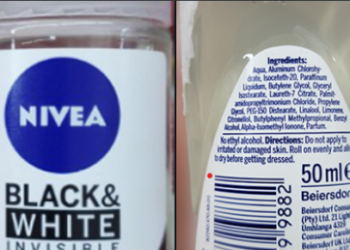Kenvue (KVUE.N), the overseeing entity of the Benylin brand, formerly under the umbrella of Johnson & Johnson, says it is engaging the Nigeria’s National Agency for Food and Drugs Administration and Control (NAFDAC) to understand more on the recall of its children’s cough syrup.
This follows the announcement of the recall of Benylin paediatric syrup by Nigeria and various African countries, including Kenya, South Africa, and most recently, Tanzania, Rwanda, and Zimbabwe.
According to a statement sent by the company in response to Nairametrics questions, Kenvue said it is conducting an assessment to verify the authenticity of the sampled product, the testing methodology employed, and the results reported by regulatory agencies.
The company also affirmed its commitment to prioritizing the health and safety of consumers, noting that it is working with health authorities to determine the appropriate course of action.
- “The health and safety of the people who use our products is our top priority,” said part of the company’s statement.
What you should know
On April 10th, 2024, NAFDAC issued a public notification regarding the recall of Benylin paediatric syrup manufactured by Johnson & Johnson.
- This decision prompted swift action from Kenya’s drug regulator, emphasizing concerns for safety and public health.
- The recall, initiated by Kenya’s Pharmacy and Poisons Board (PPB), was prompted by the detection of elevated levels of diethylene glycol, a potentially harmful substance, in the syrup.
- Subsequently, the South African Health Products Regulatory Authority announced the recall of the cough syrup.
- Furthermore, drug regulators in Tanzania, Rwanda, and Zimbabwe have also recalled the affected batch of the syrup as a precautionary measure.
The recalled batch, manufactured by J&J in South Africa in May 2021, and bearing an expiration date of April 2024, remains under scrutiny as health authorities work diligently to ensure public safety and mitigate potential risks associated with its consumption.
The presence of diethylene glycol, a compound linked to fatal outcomes in various countries since 2022, underscores the severity of the situation.
This toxic substance has been associated with tragic incidents of medication poisoning via oral ingestion, prompting significant concerns among health officials globally.
Source: Company statement
















.gif)






